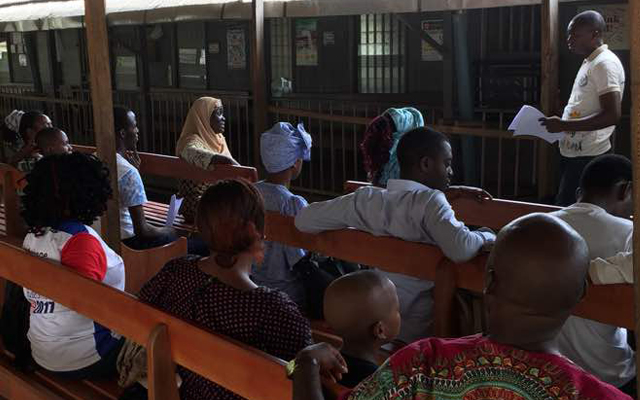At the Lagos University Teaching Hospital Haemophilia Treatment Centre (HTC) in Lagos, Nigeria, clinical management was based mainly on presumptions for many years. Although laboratory facilities were available, most people with hemophilia (PWH) in the region could not afford the cost of testing, so initial diagnoses were based mainly on clinical history and therapeutic trials with factor VIII or IX concentrate. Consequently, the severity level and inhibitor status of patients at the HTC was unknown. This situation persisted until 2018, when the Lagos University Teaching Hospital HTC was a provided funding to conduct a study through the Research Support Program (RSP) of the World Federation of Hemophilia (WFH) World Bleeding Disorders Registry (WBDR). Now, the HTC is able to accurately diagnose PWH, determine the severity of their hemophilia and their inhibitor status, and accurately record data.
The World Bleeding Disorders Registry (WBDR) Research Support Program is designed to motivate and support HTCs to collect, analyze and use their WBDR data. In the case of the Lagos University Teaching Hospital HTC, the support made it possible for the organization to correctly diagnose PWH through laboratory testing, compile complete clinical and bio-demographic data, and use the WBDR to then house that data. Having a system like the WBDR is crucial in Nigeria, because the country does not have a national data registry.
The project began by identifying and diagnosing additional PWH, and determining their hemophilia type, severity and inhibitor status. Through the RSP, the HTC was able to purchase lab kits, and set up a weekly bleeding disorder clinic at the HTC. These efforts had immediate results: in 2018, there were 12 PWH registered in the WBDR in Lagos. This figure increased to 77 PWH in 2020.
Next, the clinical and bio-demographic data of patients were entered into the WBDR. Finally, the HTC was able to organize two meetings to educate PWH on hemophilia care, and the importance of regular follow-up visits and annual blood work to verify inhibitor status. The PWH were also educated on the benefit of the WBDR as a systematic registry.
The Research Support Program of the WBDR had a major impact on the quality of life of PWH in Lagos. The RSP allowed the Lagos University Teaching Hospital Haemophilia Treatment Centre (HTC) to both improve diagnosis and care, and also significantly improve data collection.
To find out more about the WFH WBDR Research Support Program, please click here.












